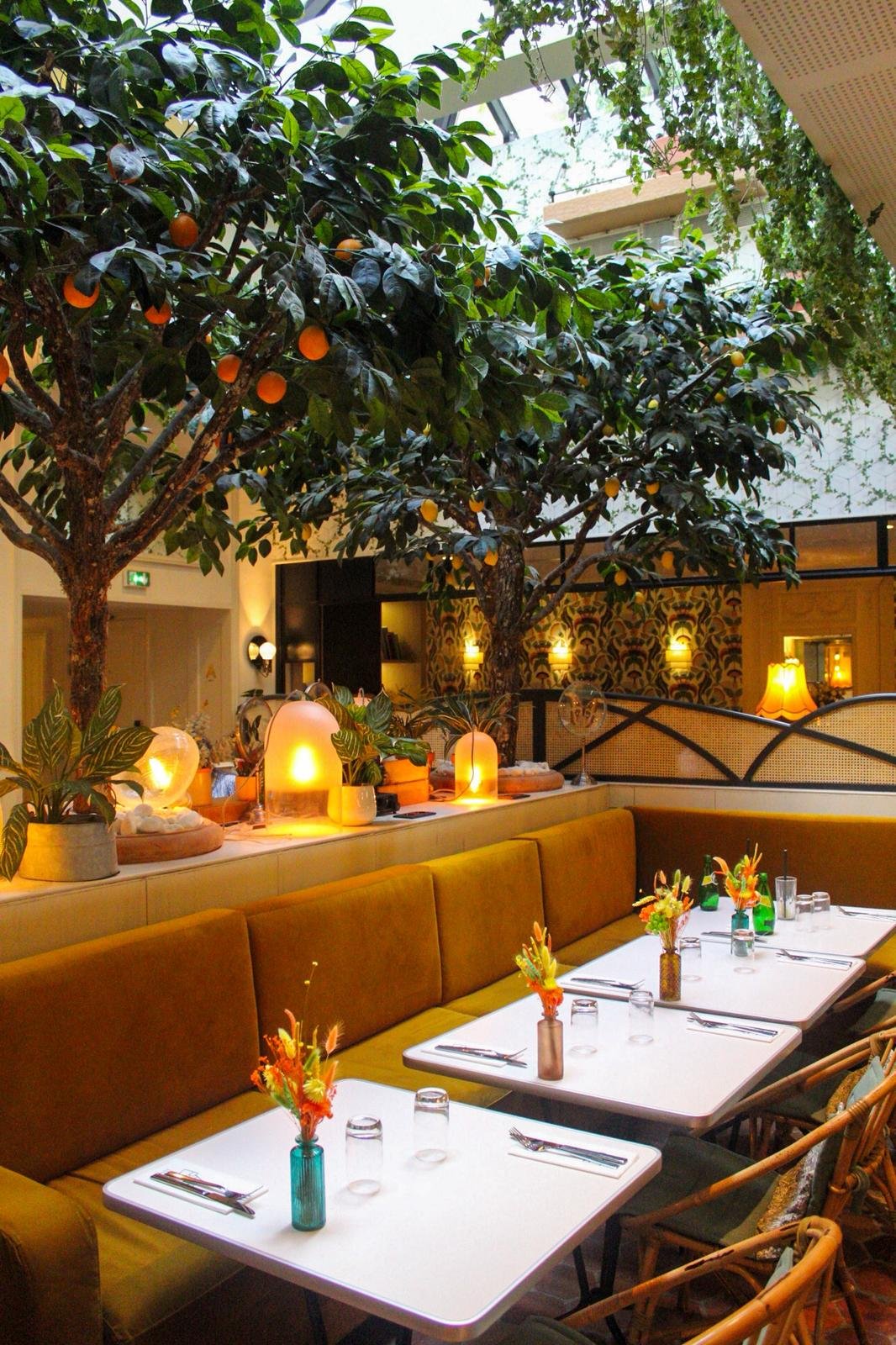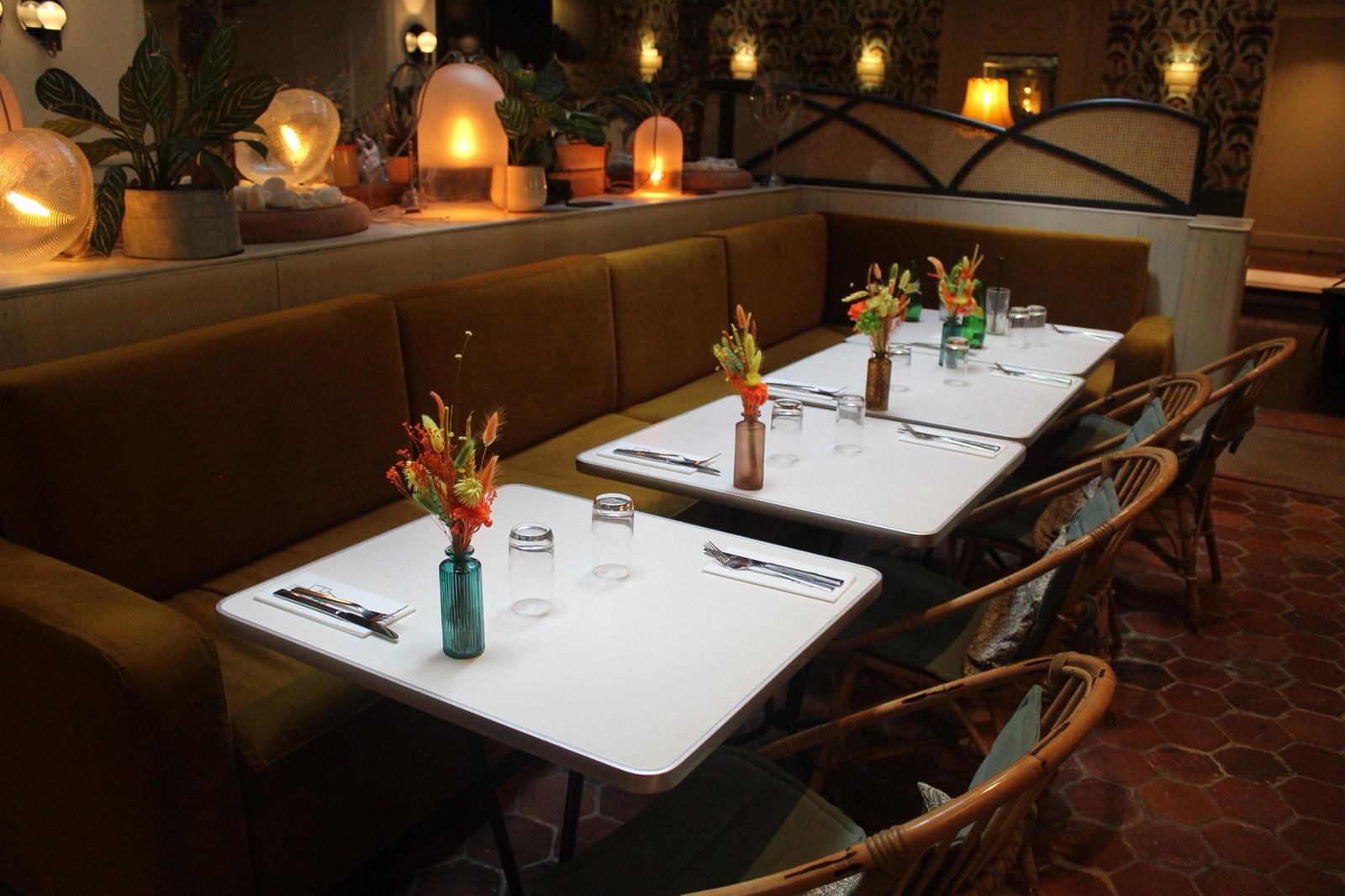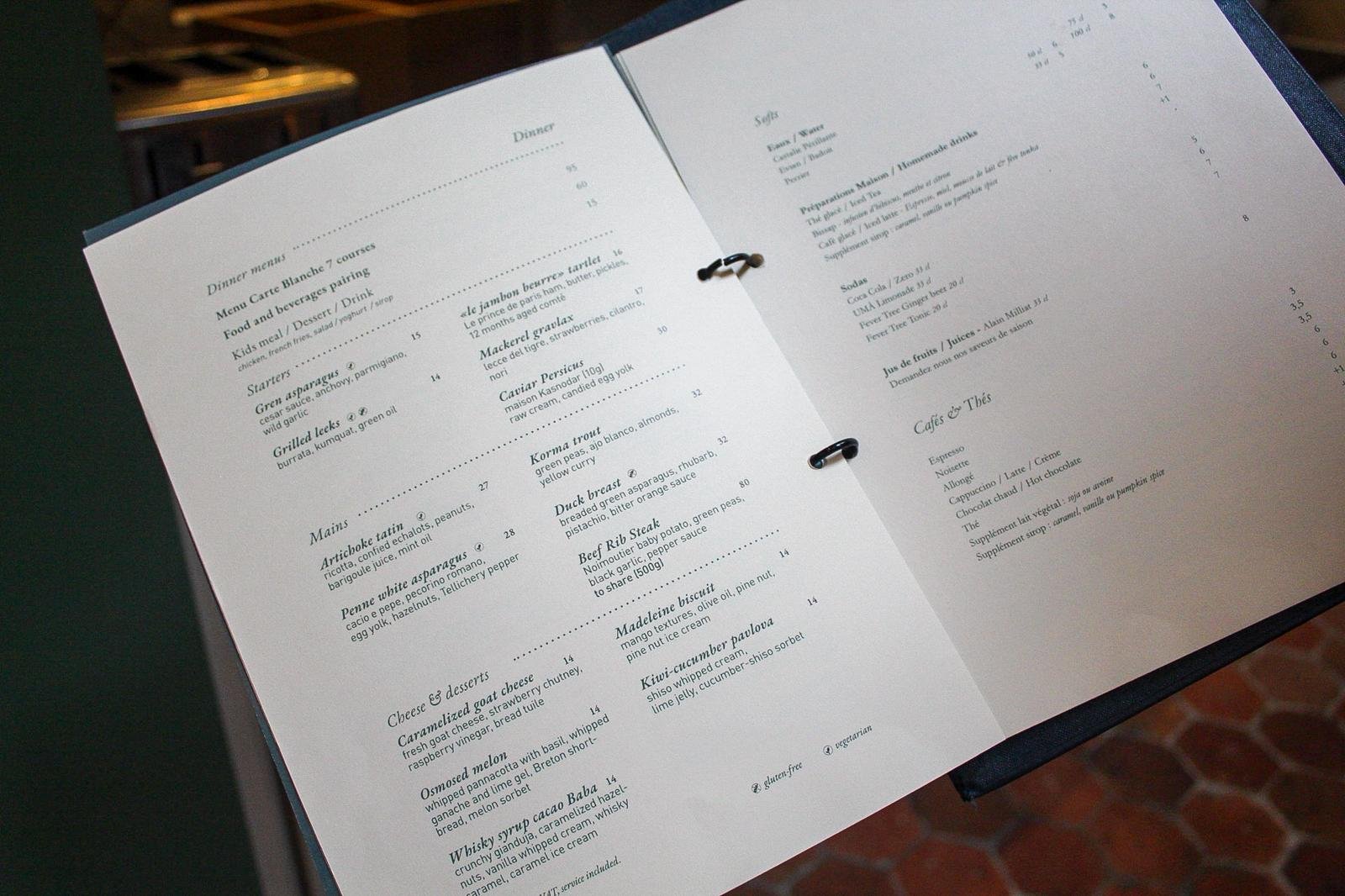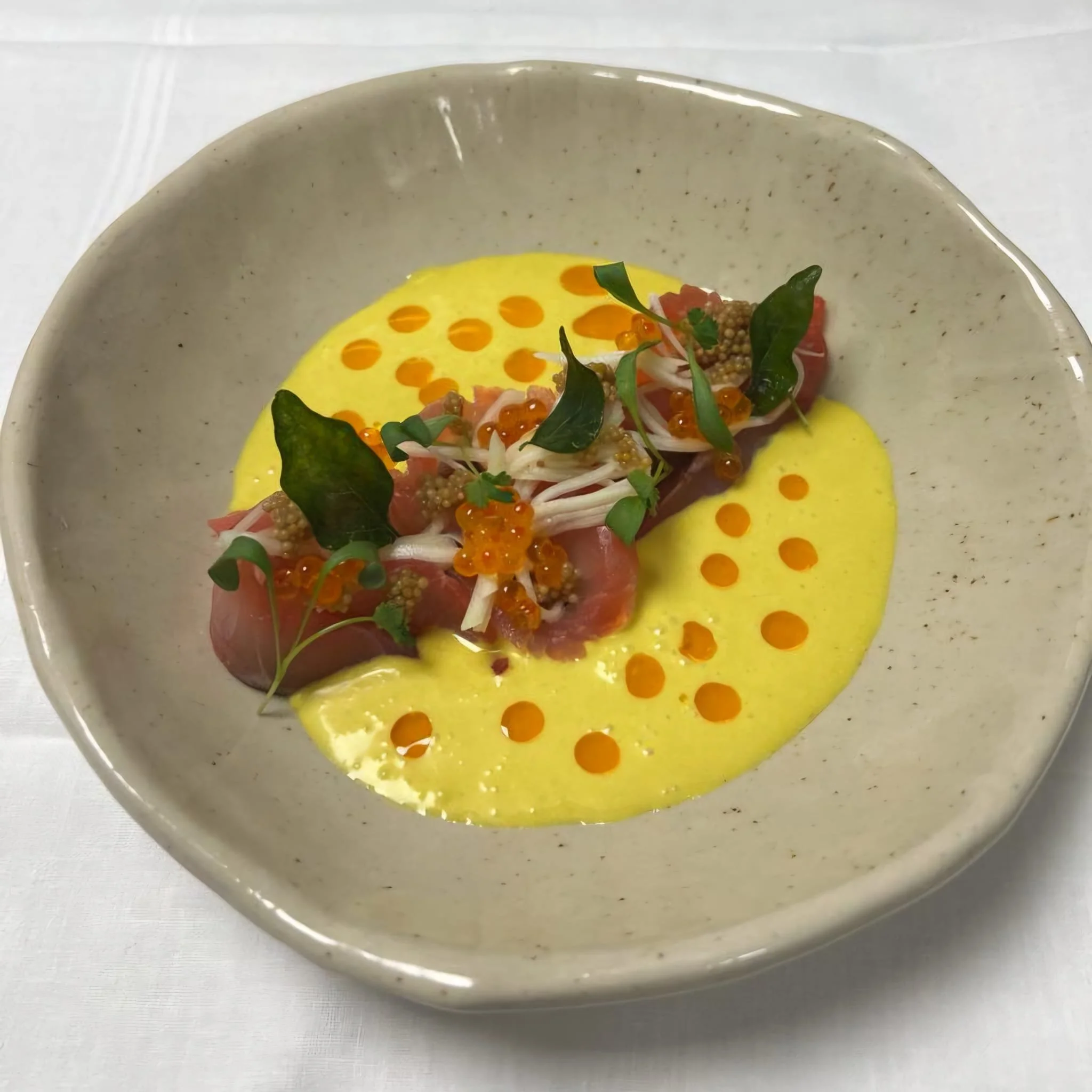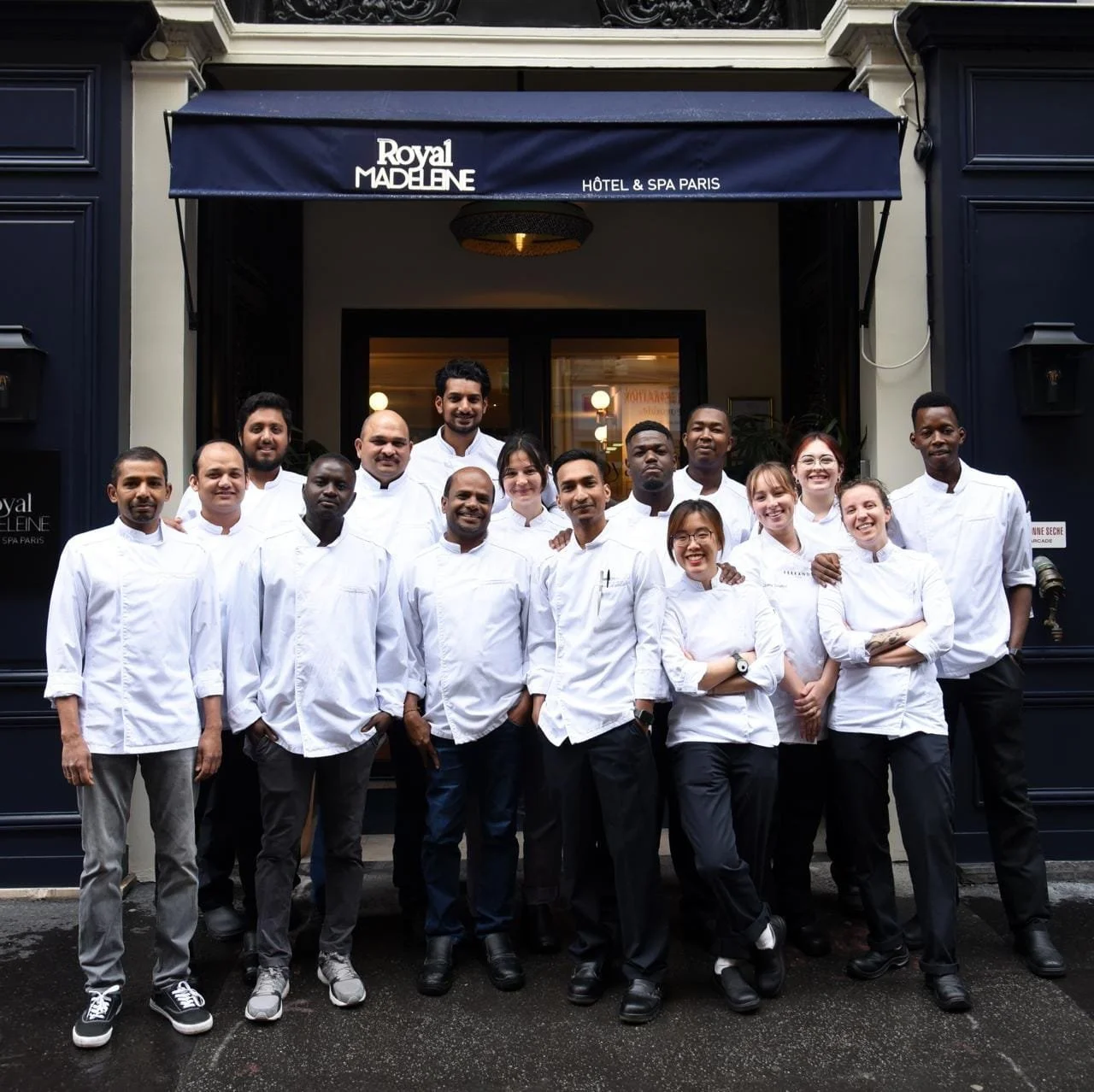Meet Ashwin
Raised in France and of Indian descent, Ashwin has one of the most fascinating cultural backgrounds I’ve come across in a while. He grew up in Paris but spent many childhood summers in Pondicherry (or Puducherry), a beautiful coastal town and former French colony in India. His grandfather was raised in Vietnam, while his grandmother spent her formative years first in Pondicherry and later in La Réunion, a small island dotted in the Indian Ocean.
While we spoke at Arbore, the French-Indian restaurant where Ashwin serves as executive chef (he also developed the menu), it became clear how much his diverse cultural heritage, childhood memories and travels shape not only his food, but his approach to life.
What makes Ashwin’s journey unconventional is the depth of exploration into his heritage. His openness and respect for the unfamiliar are reflected in his cooking, his life philosophy and his very definition of success.
I’ve been lucky to grow up in a city as diverse as London, yet through Ashwin I was reminded that even within cultures we believe we know well, there is always more to discover.
“On the very first day of culinary school, I went home that night and told my parents, ‘This is the best day of my life.’ I was finally doing something I loved.”
Ashwin Marius Le Prince
Ashwin’s Food Profile
Go-to comfort food? Carbonara
If you could be a fruit or vegetable, what would it be and why? A Mango. I grew up around lots of them!
What’s a food item that reminds you of your childhood? My Grandma’s Coconut Broth served with rice & meat
Restaurant you’re currently loving? Il Brigante (Paris, 18e). An Italian pizzeria
Restaurant you want to visit next? Vaisseau by Top Chef’s Adrien Cachot (Paris, 11e)
The Interview
Tell me about your childhood?
After getting my Baccalaureate at 18, I went to a culinary school in Paris called CFA Médéric. Culinary school lasted three years, and each year included a paid placement in a different restaurant. The first year I learnt key culinary skills, and the next two were more about management and accountability.
Life in Paris was great. From 18, I was always outside meeting people and exploring the city. I think my curiosity helped me put myself out there, and the time I spent in Pondicherry really helped build my confidence. My grandfather would take me to the market daily and he spoke to everyone! I think I picked that up from him. It’s why I make a point to greet my neighbours, know their names and build that same kind of community around me today.
You spent quite a lot of time in India. What are your fondest memories of Pondicherry?
I grew up in Paris but visited Pondicherry with my family every two years from birth. After finishing my studies, I returned at 22 to live in Pondicherry and work there as a chef for a year. When I used to visit with my parents, I didn’t get to experience much of everyday life. I didn’t go out on my own, you would stay in the family home or go to the same restaurants. But living there on my own was completely different, it was amazing. I worked with locals, teaching them culinary skills whilst they taught me more about Goan cuisine. But more than the food, I learned from their humility, sense of community and generosity. They had little, but they shared a lot. That sense of community changed my perspective. It made me more grateful for what I had and reminded me to find happiness in my own life.
Ashwin with his grandparents in Pondicherry
What’s a dish that reminds you of your childhood?
My grandma’s coconut broth. She would start by frying mustard seeds and curry leaves in coconut oil, then add coconut milk, turmeric and tamarind. We would eat it with rice and some fried meat. Also, most mornings, I would wake up to French toast. Then my grandfather would take me to the market, and when we came back, my grandma would cook with whatever we bought.
Was becoming a chef something you dreamed of?
Yes, but whilst I was in school and even into my first year of culinary school, being a chef wasn’t seen as glamorous. It was seen as something you did if you had no other career options. There were no big culinary TV shows like Top Chef back then. I was lucky that my parents supported me. They didn’t push me to be a doctor or lawyer, they just said I had to finish my general studies until I was 18, so I had a solid foundation. After that, I could pursue what I wanted.
Ashwin’s coconut dish, inspired on his grandmother’s coconut broth.
When did you realise cooking could be more than a passion?
I knew from the age of 10 that I wanted to be a chef and own a restaurant one day. But I had to complete my general studies even though I didn’t want to be there. So once I turned 18, I went straight to culinary school. On the very first day, we learnt how to cut fruit and vegetables. I remember going home that night and telling my parents, “This is the best day of my life.” I was finally doing something I loved.
You have such a unique multi-cultural background and history. How did this shape your identity as a chef?
I am the Executive Chef at Arbore, where I developed the menu. It has an Indian-French influence, but also includes Vietnamese flavours which was influenced by my grandfather who was raised there. I’m also inspired by Creole flavours thanks to my grandmother who was raised in La Réunion.
When it comes to developing a new menu, I do not force the creative process. When I create a fusion dish with Indian influence, it’s often tied to a memory from childhood, like something my grandmother made.
What advice would you give to aspiring chefs?
You can’t escape phases: don’t be in a hurry. Learn, because mastery takes time and challenges will help you become a better chef. For example, 10 years ago, if I had the money to open a restaurant, it wouldn’t have lasted because I didn’t have the experience of running one. Now I can run a restaurant successfully because I’ve had the time to learn the business side. I meet a lot of young chefs who want to make complicated dishes overnight because they see me do it easily. But I tell them, if it looks easy it’s because I’ve practised for years. It’s like the Picasso story, when someone asked him why a sketch cost so much when it only took him a few minutes to complete it, and he replied, “No, it has taken me 40 years to do it that quickly.”
Ashwin Marius Le Prince (Credit: food2vous)
There are many chef shows like The Bear. How accurate are these shows of the kitchen? (Sadly Ashwin does not watch ‘Emily in Paris’!)
I’ve watched Season 1 of The Bear, I think it’s quite accurate on what happens in the kitchen. The stress, the decisions, the personalities. The angry chef, the pressure - all of it can exist in a kitchen, but it doesn’t have to be that way.
Is the stereotype of the angry chef real?
In many restaurants, yes. The military-style hierarchy in the kitchen can create a toxic environment. If you work in a 3-star Michelin restaurant and the head chef is a piece of shit, you feel you can’t complain because it can impact your career. There’s a French journalist, Nora Bouazzouni, who wrote a book called Violence in the Kitchen. She shares testimonies of many chefs and exposes the toxic culture in French kitchens and the poor conditions some workers face.
The Arbore team
How do you define success? Has this evolved over time?
Yes. My childhood dream was to own my own restaurant, open several, and still be able to spend quality time with my family. Now, success looks like the kitchen being able to run without me being there 24/7, and not cooking out of obligation.
For over 10 years, I worked overtime on weekends, sometimes 80-hour weeks. You miss so many birthdays and important moments. I want to have a family, and I don’t want to miss those things. So success now looks like freedom and quality time with family and loved ones. I’m now moving more into consulting and helping launch new projects, and I hope to eventually own my own restaurant soon.
